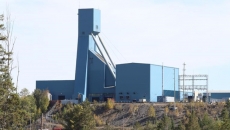OTTAWA - The federal government plans to keep ramping up the record number of new permanent residents in Canada over the next three years as it works through a massive backlog of applications that have piled up during the COVID-19 pandemic.
Federal Immigration Minister Sean Fraser said in his newly released plan that Canada will admit 431,645 permanent residents in 2022, 447,055 next year and 451,000 in 2024.
The federal government says it wants to boost its newcomer admissions rate to just over one per cent of Canada's population by 2024.
Despite Canada's rebound since the onset of the pandemic, there are still hundreds of thousands of jobs in all sectors waiting to be filled, Fraser said.
In addition, Canada's population is aging and by the end of the decade the government expects the worker to retiree ratio will fall to only three to one.
"If we want to be able to sustain our health care system, our public education system, the social services and benefits that are provided by different levels of government, we're going to need more workers and young families to come here," Fraser said in an interview.
He said increased immigration will be key to Canada's pandemic recovery.
Business Council of Canada president Goldy Hyder agreed, and in a statement Monday said an economy that is chronically short of workers cannot achieve its potential.
Hyder cautioned the government that the growing workforce must be met with more money for public services, housing and infrastructure.
There is a backlog of more than 1.3 million permanent and temporary residence applications as of Feb. 1, which the government says is mainly due to slowdowns during the pandemic.
Fraser hopes to get processing times get back on track by the end of the year, and has introduced $85 million and new modern systems to try to speed things up.
Some people may have made other plans while enduring the long wait times, but Fraser said he believes people still want to come to Canada.
"My sense is, from talking to stakeholder organizations, from talking to applicants who would like to come to Canada, that Canada is now and will remain a destination of choice for people all over the world," he said.
"We should be prepared to welcome more of them by increasing our immigration levels, so long as our communities have the capacity to absorb them and our economy demands them to be here."
The government exceeded its 2021 target of 401,000 new permanent residents by approving 405,0000 applications in 2021, which is the most for a single year in Canada's history.
That gives Fraser confidence the government will actually be able to meet the targets it set out, he said.
"We did that in a context of a global pandemic that shut down our borders for a large portion of the year, which required us to take a completely different approach to immigration," Fraser said, adding that during the pandemic the government focused on people already within Canada.
He said the government also managed to pivot during the humanitarian crisis in Afghanistan, and has committed to resettle 40,000 Afghan refugees in Canada. So far 7,550 Afghan refugees have arrived.
The government expects about 57 per cent of new permanent residents over the next three years to apply through economic streams, but the number of new refugees is expected to be higher than previous estimates as well.
While the government projected 60,500 refugees and protected persons will receive permanent status in Canada in 2022, that number has now been increased to 76,545.
The UN Refugee Agency welcomed the news Monday, "at a time of record forced displacement in the world."
"This will allow more vulnerable refugees to find safety and a new home," the agency said in a statement.
Fraser said Immigration, Refugees and Citizenship Canada will continue to expedite applications of health-care workers during the pandemic, but the specifics must be worked out with provinces to ensure the right professionals are being sought.
IRCC will also continue to process applications in some of the special pandemic programs that targeted temporary residents filling essential roles in Canada, to offer them permanent status.






